
What are the key demand drivers for the labs market in India?
The rising incidence of chronic diseases like diabetes, CVDs, cancer, and respiratory disorders has been driving demand for diagnostic labs. As the Indian population ages and lifestyle factors contribute to the growth of these diseases, there will be a greater need for accurate and timely diagnosis. For example, the increasing prevalence of diabetes has led to a higher demand for diagnostic tests such as blood glucose monitoring, HbAlc testing, and lipid profiling.
Tech advancements have expanded the range of diagnostic tests and improved their accuracy and efficiency. New techniques, such as molecular diagnostics, genetic testing, and advanced imaging modalities, have increased the demand for laboratory services, allowing early detection, personalized medicine, and targeted therapies. The emergence of next-generation sequencing (NGS) has revolutionized genetic testing and opened new avenues for diagnosing genetic disorders and predicting disease risks.
There is a growing emphasis on preventive healthcare and early detection to improve health outcomes and reduce costs. This shift in the approach has led to a high demand for screening tests, wellness panels, and health checkups offered by diagnostic laboratories. Examples include routine screenings for hypertension, cholesterol levels, and cancer biomarkers, as well as preventive tests for infectious diseases like HIV, hepatitis, and sexually transmitted infections.
In addition, the factors such as increasing healthcare expenditure, expanding access to healthcare services, and growing awareness about the importance of regular checkups, contribute to the sustained growth of the diagnostic laboratories market.
This story is from the September 2023 edition of Healthcare Radius.
Start your 7-day Magzter GOLD free trial to access thousands of curated premium stories, and 9,000+ magazines and newspapers.
Already a subscriber ? Sign In
This story is from the September 2023 edition of Healthcare Radius.
Start your 7-day Magzter GOLD free trial to access thousands of curated premium stories, and 9,000+ magazines and newspapers.
Already a subscriber? Sign In

Bhuvan Bam launches sexual wellness brand Peppy
Peppy has partnered with the popular digital content creator and actor Bhuvan Bam, who joins as both a co-founder and an investor.
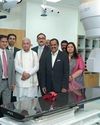
KimsHealth inaugurates Linear Accelerator for Radiotherapy
The TrueBeam technology enables doctors to effectively deliver radiation to even the most challenging cancer-affected areas of the body.
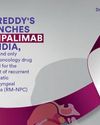
Dr. Reddy's launches Toripalimab for nasopharyngeal carcinoma
Dr. Reddy’s obtained exclusive rights to develop and commercialize Toripalimab in 21 countries including India, South Africa, Brazil and some countries in Latin America.
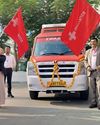
Red.Health and Medanta launch UP's first 5G ambulance
5G ambulances use SyncX infrastructure to transmit critical patient data to hospital ER teams with less than two seconds of latency.

THE MODERN EVOLUTION OF AYURVEDA: A TIMELESS APPROACH TO HEALTH
By integrating Ayurveda with modern healthcare and building advanced facilities, India can create a hybrid model that delivers quality care to underserved populations while preserving its heritage.
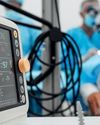
BOOSTING INDIA'S MEDICAL EQUIPMENT MANUFACTURING
A well-structured budget can redefine the healthcare ecosystem, enabling synergies between hospitals, medtech, logistics, and pharma industries.

HEALTHCARE SECTOR EYES MAJOR REFORMS AND HIGHER ALLOCATION
By addressing critical priorities, tackling challenges, and aligning with expert insights, this budget can pave the way for a healthier and more resilient India
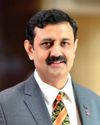
EVOLVING HEALTHCARE LANDSCAPE FOR FUTURE NECESSITIES
The integration of digital health solutions will facilitate better patient tracking and data management leading to improved healthcare outcomes
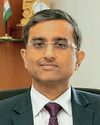
STRATEGIC INVESTMENTS & REFORMS EXPECTED
Shifting hospitals from the GST exemption category to zero-tax would allow input credit, lowering treatment costs for patients.

BUDGET 2025-26 KEY EXPECTATIONS
Industry leaders have shared their expectations for the upcoming budget, emphasizing the need for comprehensive reforms in areas ranging from medical education and skill development to insurance accessibility and technological innovation.